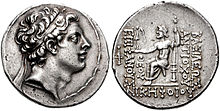January 8, 2016
Post #14
Dear Readers,
We are dedicated to the absolute co-equality and balance between men and women! Our premise is that God created us this way to be whole, complete, unified – as One, through one another, masculine and feminine. We are discussing how the Word of God as taught by Jesus of Nazareth was willfully or inadvertently misrepresented or misunderstood such that men came to believe they were somehow more equal. God is One! We are one! Jesus said,
“Hear O Israel – The Lord our God is One Lord. And you shall love the Lord your God with all your heart, and with all your soul, and with all your mind, and with all your strength.’
This is the first and great commandment.
The second is like it, namely this: You shall love your neighbor as your-self.” (Pages 305 – 306)
Whether or not you agree please “share” us with your friends, and be our “friend”!
You are reading one in a series on the “Feminine-ist” teaching of Jesus of Nazareth.
~~~~~~~//~~~~~~~
~~~~~~~//~~~~~~~
Jesus is not a Hellenist, while the Pharisees were. Does this mean that Jesus and the Pharisees never agreed on anything, in any way? Not entirely. Indeed Jesus and the Pharisees did agree on some of the same things. Similarly the Sadducees were not Hellenists, and Jesus did not agree with them in all things. Understanding how Jesus fills the voids and gaps between the Pharisees and Sadducees, while overlapping both in other ways is very helpful. It is also critically important because the Nazarene sect, which grew up around Jesus, was pushed and pulled toward Pharisee thinking in the absence of Jesus. All things that we will discuss a greater length elsewhere.
Authorities on this period agree with something in the narrative from this excerpt from Saul/Paul’s defense before the Sanhedrin in about 60 C.E. as recorded in Acts. Being a Pharisee and well aware of this gap or void between beliefs of the Pharisees and the Sadducees in the Sanhedrin, he used their disagreement to stir dissent between them to his own advantage:
“Men and brethren, I have lived in all good conscience before God up until this day.”
One part of the council were Sadducees and the other part Pharisees so he said,
“Men and brethren, I am a Pharisee of the hope and resurrection of the dead – and I am called into question!”
There arose dissension between them because the Sadducees say that there is no resurrection, neither Angel nor Spirit, while the Pharisees believe in both. The Scribes that were Pharisees’ stood up and argued, saying,
“We find no evil in this man. And if the Spirit or an Angel has spoken to him let us not fight against God.” (Page 406 – 407.)
What did Jesus say? It is well known that Jesus shared the Pharisees’ belief in “resurrection” and “Spirit”, although there are only allusions to his belief in “Angels”. This of course made it possible for him to cooperate and collaborate with the Pharisees on those issues, while critical of the Pharisees on others. Our interest here is that “resurrection” is not one amorphous belief. Indeed as we will discuss going forward, the resurrection Jesus speaks of is much different from the very narrow form the Pharisees discuss. Yet the belief in resurrection generally is tied to the coming Messianic Age nevertheless.
The point to take away at this time is that within this gap, void and even overlaps between the Pharisees and the Sadducees in particular, we find Jesus teaching and ministering for a balanced perception of God. A Divine Balance of absolute co-equality of God’s Divine Feminine and Divine Masculine aspects. And through his ministry, he never really gives up on trying to convert the Pharisees, but tries to enlighten their “male-dominant” Hellenist views to accept women as their co-equals. We refer to his teaching about God’s Divine Balance of masculine and feminine energy as “Feminine-ism“.
~~~~~~~//~~~~~~~
This weblog, our pamphlets, study guides and other materials are inspired by Miguel’s book, The Word 2.0, a new biography of Jesus of Nazareth in his own words, based upon a single, unified timeline.
~~~~~~~//~~~~~~~
God is undifferentiated masculine and feminine energy in perfect balance, whole, complete, unified, and co-equal! God is neither male nor female, and yet both – inseparable! And yet God made each of us manifest male and female, man and woman, in God’s perfect likeness! Truly a state of grace.
How Adam’s actions brought about the fall from this state of grace is something we will discuss elsewhere. Suffice it to say that long before Jesus was born, men and women were already out of balance. In the more immediate sense of events which took place in Israel before Jesus was born, I found the Seleucid Greek invasion critically important because of the belief system we call “Hellenism” the Greeks forced on the children of Israel at that time.
It may not be especially well known today but the Seleucid Greeks from Syria outlawed our One True God! They forbade the worship of God under the penalty of death. Their King Antiochus IV Epiphanes (Antíochos D’ ho Epiphanḗs, “God Manifest”), believing he was god, decreed the people would have no other god before him.
Hellenism did cause divisions among the people though. On one hand identifying with the Greek empire and culture could enrich certain elite Israelites, but on the other hand their man-worship violated God’s Law. This divided not only those who were “Hellenists”, their supporters and adherents, from those who were “Traditionalists“, but also, apparently, men from women. Why? Because it is also in the nature of Hellenism that women be subordinate to men.
But our One True God was definitely not a Hellenist, right? Given that, Jesus was not a Hellenist – quite the opposite. We might characterize Jesus’ ministry as anti-Hellenist – teaching men in particular about the Divine Balance of God’s Feminine and Masculine aspects, specifically “Feminine-ism“. I briefly outline some basic principles of Jesus of Nazareth’s life and ministry, as they are revealed in “The Word 2.0”:
1. Jesus was a “Traditional” Hebrew-Jewish teacher and Rabbi – to say the very least!
2. Jesus was not a “Hellenist” in any sense of our understanding the word.
3. Jesus espoused and promoted that our One True God – the God of Israel, is a perfect co-equal balance of both masculine and feminine, as is reflected in all Creation.
4. Jesus said that we must love the Lord our God first and foremost, and then love one another as we love ourselves.
5. Jesus taught that love, beginning with God’s “Ruach HaKodesh” – the Breath of Life and Holy Spirit, as aspects of God’s Divine Feminine, is the only way that men can experience the Kingdom of God.
6. Jesus rejected the kind of egocentric, selfish, self-centered thinking and behavior of men that characterizes “Hellenism”.
We will discuss each of these points in much greater detail as we continue, and, look for my study guides they will soon also be available!
Love & Light!
Miguel





